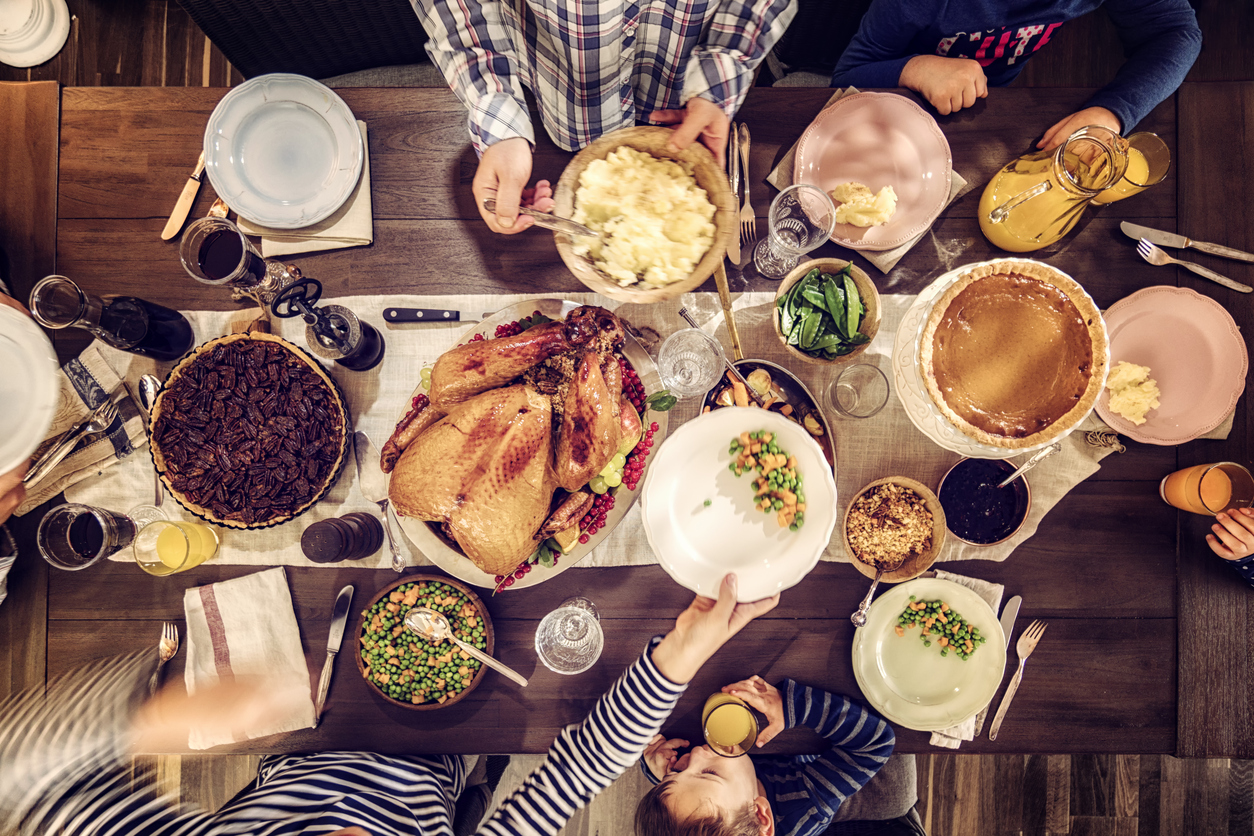As the holidays approach, anxiety rises in anticipation of sitting down at tables with people whose worldview you do not share. Maybe you’re anxious about the college student whose social media feed demonstrates they’re considering ideologies foreign to the faith in which they were raised. Or, maybe you’re anxious about the aged uncle who believes the news he watches is actually the gospel truth – even when it’s far from the actual Gospel. I have good news for you! There’s a way to prepare yourself for healthy holiday dialogue – even if others choose to be their totally partisan selves.
How do we build a house united instead of continuing to tear down the house (and one another) in the process? I talked with John Wood, Jr. and Donna Murphy from Better-Angels.org about practical strategies that all of us can employ in our conversations across the holiday table and across the political aisle.
Take a LAPP. LAPP is the acronym for:
- Listen
- Acknowledge
- Pivot
- Perspective
Listen – Actually listen – with ears to hear, eyes to see and a mind to comprehend. Listen actively in preparation for the next step.
Acknowledge what the other person is saying. Reflect back what you heard, clarifying things that you did not understand – with the goal of a dialogue rooted in understanding. If a person does not feel heard, they will naturally grow defensive when you begin to offer information, experience, or ideas contrary to their own. For example, after great uncle Charlie speaks his peace about the current proceedings in Washington, D.C., you can demonstrate that you heard him by paraphrasing back what you heard him say (and tone matters here). Uncle Charlie expects you to dismiss him as old and irrelevant. Demonstrate that you value him by valuing what he has said – especially if you disagree. You might invite him to “tell me more” about some aspect of what he said. Or you might say, “What in your experience leads to you that particular view?”
Then it’s time to pivot. I call this reframing the conversation. This is the point at which you ask the kind of questions Jesus asked: An open-ended question that seems to have more than one answer – but in reality has an answer that’s literally out of this world.
Maintain an eternal perspective. The goal here is to get people pondering what they’re thinking about, why they’re thinking about it in that way, and then consider the eternal perspective. Am I seeing things – and this particular thing – as God sees it? That requires discerning God’s pleasing and perfect will in a particular matter. That takes wisdom and time – both of which can be in short supply at the Thanksgiving table!
Trust me, old uncle Charlie has got some stories to tell. Your challenge is to get him telling those old stories so you can know him, he can feel valued, and you can both begin to see why he sees things the way he does. Try asking him to tell you about what life was like when he was growing up. Describe the house or town he lived in. Who was President? How did they get the news? What was going on in the world when he was your age (or the age of the youngest person at the table).
Make an observation about how you can see how the realities of growing up on a farm in the Depression would lead a person to place a high value on resilience, ingenuity, rural values and a healthy skepticism of Wall Street. Then you can ask uncle Charlie how people made it through – and how poor people today are really no different and need the kind of help he received from his community and church back in the day. You can talk about how you see the role of government differently because of the experiences you have had while continuing to value the perspective of others.
This way we can share a holiday meal without carving up and devouring one another. That would be a good, right?




